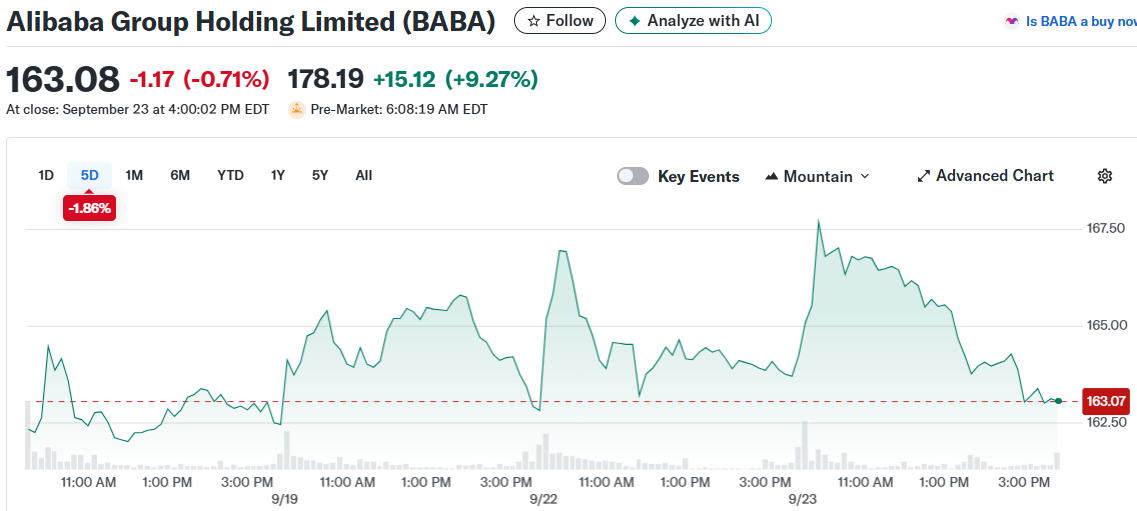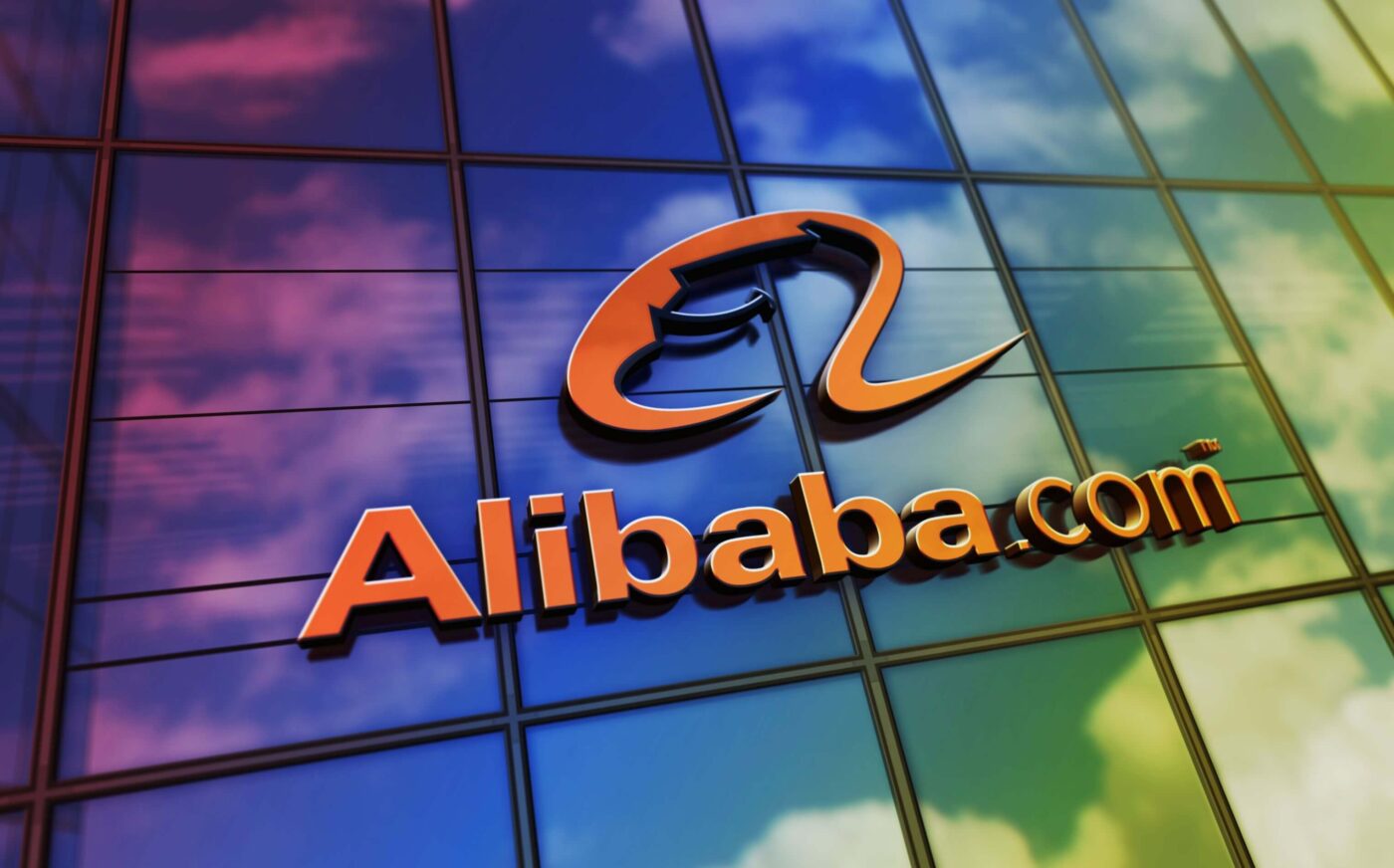TLDR
- Alibaba stock surged 9.7% to nearly 4-year highs after CEO Eddie Wu announced plans to increase AI spending beyond the existing $53 billion three-year commitment
- The company unveiled its new Qwen3-Max large language model and expanded AI product suite at its annual cloud conference
- Alibaba Cloud will launch first data centers in Brazil, France, and Netherlands, with additional centers planned for Mexico, Japan, South Korea, Malaysia, and Dubai
- Wu projects global AI investment will reach $4 trillion over the next five years as companies race for technological breakthroughs
- The stock has more than doubled this year, with cloud division showing triple-digit growth in AI-related products
Alibaba Group shares jumped to their highest level in nearly four years after CEO Eddie Wu announced the company would increase its artificial intelligence spending beyond an already massive commitment. The stock rose 9.7% in Hong Kong trading Wednesday.

Wu revealed plans to expand investment past the 380 billion yuan ($53 billion) three-year AI infrastructure plan announced in February. He made the announcement at Alibaba Cloud’s annual technology conference in Hangzhou.
The CEO painted a picture of explosive growth ahead. He expects global AI investment to hit $4 trillion over the next five years. Alibaba needs to keep pace with this spending race, Wu said.
“The industry’s development speed far exceeded what we expected, and the industry’s demand for AI infrastructure also far exceeded our anticipation,” Wu told the conference. “We are actively proceeding with the 380 billion investment in AI infrastructure, and plan to add more.”
The stock surge reflects investor appetite for AI spending announcements. Markets continue viewing these massive outlays as signs of corporate confidence in the technology’s potential.
Alibaba’s Hong Kong-listed shares hit their highest point since 2021. Year-to-date gains topped 107%. US-listed shares jumped 9.3% in premarket trading.
New AI Products and Global Expansion
The company officially unveiled its Qwen3-Max large language model at the conference. This represents the latest version of Alibaba’s answer to competing AI systems from rivals like Tencent and Baidu.
Wu positioned Alibaba Cloud as a “full-stack AI service provider.” The division delivers computing power for training and deploying large AI models through its own data centers.
Alibaba Cloud announced plans to launch its first data centers in Brazil, France, and the Netherlands in the coming year. Additional centers will open in Mexico, Japan, South Korea, Malaysia, and Dubai next year.
The expansion comes as the cloud division posted 26% sales growth last quarter. This made it Alibaba’s fastest-growing unit. AI-related products showed triple-digit growth during the period.
The company joins Chinese tech giants like Tencent, Baidu, and JD.com in massive AI spending. Bloomberg Intelligence estimates these four companies could spend over $32 billion on AI infrastructure and services in 2025 alone. That’s up from just under $13 billion in 2023.
Chip Strategy Takes Shape
Alibaba faces challenges accessing Nvidia’s advanced AI processors due to US export controls. The company is working on hardware innovations including its own chips and faster computers.
Wu discussed the company’s semiconductor efforts at the conference. Alibaba’s T-Head unit has secured China Unicom as a customer for its AI accelerators. State media reported the wireless carrier will deploy the chips.
The company revealed it’s integrating Nvidia’s development tools for physical AI into its cloud platform. This gives clients tools to build services for robots and autonomous vehicles.
Beijing is pushing Chinese firms to reduce dependence on US chip suppliers. The government recently urged companies to avoid Nvidia’s RTX Pro 6000D graphics cards that can be used for AI work.
Alibaba has been building its chip capabilities for years. It acquired chip design house Hangzhou C-Sky Microsystems in 2018 and established T-Head the same year.
Bloomberg Intelligence analysts noted the increased AI spending is unlikely to generate meaningful financial returns soon. Alibaba’s free cash flow turned negative at $2.6 billion as capital spending more than tripled to $5.4 billion last quarter. Wu announced the expanded AI investment plans and new product launches at Wednesday’s conference in Hangzhou.






